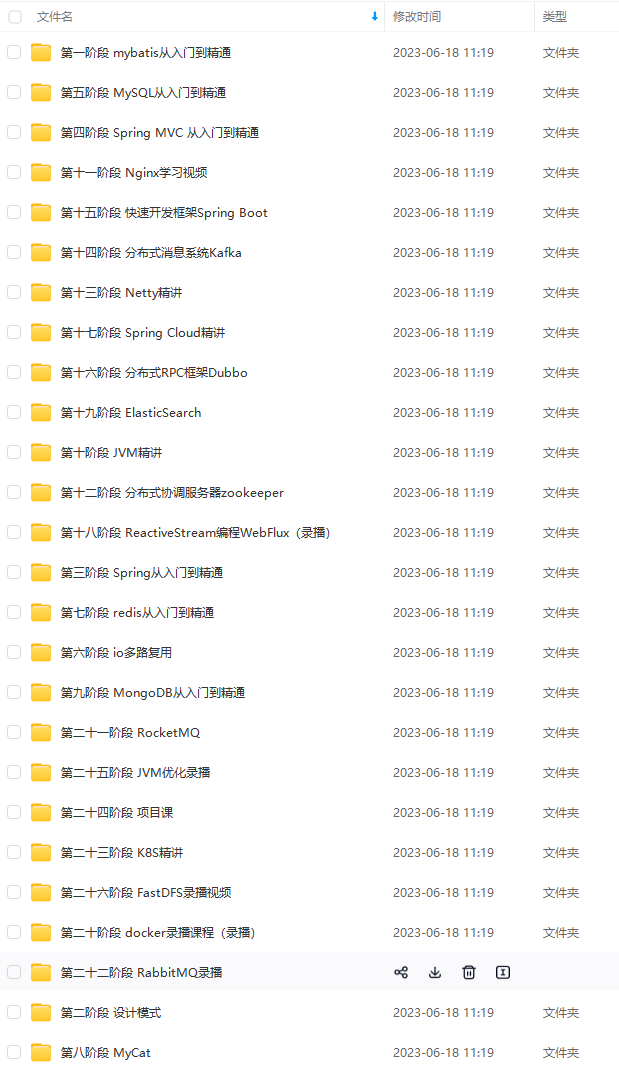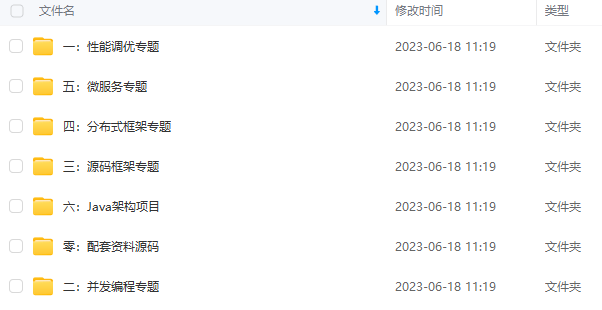redis-server [configfile] [options]
configfile 参数指定配置文件,options 参数指定启动配置项,可以覆盖配置文件中的配置项。
举个栗子:
redis-server ./redis.conf --port 6380 --protected-mode no
关于配置信息,存储在如下结构体中:
//结构体稍微有点庞大(接近2W字),所以我稍微缩写一点哈,具体后面有用到再拿出来
struct redisServer {
/* General */
pid_t pid; /* Main process pid. */
char configfile; / Absolute config file path, or NULL */
char executable; / Absolute executable file path. */
char *exec_argv; / Executable argv vector (copy). */
···
}
这是一个极长的函数,不过没有那个结构体长,而我们此次要学的技法也主要是在这里面,所以还是能接受的。
int main(int argc, char **argv) {
struct timeval tv;
int j;
#ifdef REDIS_TEST
//这里略去
#endif
/* We need to initialize our libraries, and the server configuration. */
#ifdef INIT_SETPROCTITLE_REPLACEMENT
spt_init(argc, argv); //修改进程名
#endif
//此处略去一批
server.sentinel_mode = checkForSentinelMode(argc,argv); // 检查服务器是否以 Sentinel 模式启动
initServerConfig(); //将配置文件初始化为默认值(详见后文)
//此处再省一批
/* We need to init sentinel right now as parsing the configuration file
-
in sentinel mode will have the effect of populating the sentinel
-
data structures with master nodes to monitor. */
if (server.sentinel_mode) { //今天不讲哨兵,所以不管它
initSentinelConfig();
initSentinel();
}
//略
//开始了
if (argc >= 2) {
j = 1; /* First option to parse in argv[] */
sds options = sdsempty();
char *configfile = NULL;
/* Handle special options --help and --version */
if (strcmp(argv[1], “-v”) == 0 ||
strcmp(argv[1], “–version”) == 0) version();
if (strcmp(argv[1], “–help”) == 0 ||
strcmp(argv[1], “-h”) == 0) usage();
if (strcmp(argv[1], “–test-memory”) == 0) {
if (argc == 3) {
memtest(atoi(argv[2]),50);
exit(0);
} else {
fprintf(stderr,“Please specify the amount of memory to test in megabytes.\n”);
fprintf(stderr,“Example: ./redis-server --test-memory 4096\n\n”);
exit(1);
}
}
/* First argument is the config file name? */
if (argv[j][0] != ‘-’ || argv[j][1] != ‘-’) { //如果不是 --开头,那就是配置文件
configfile = argv[j];
server.configfile = getAbsolutePath(configfile);
/* Replace the config file in server.exec_argv with
- its absolute path. */
zfree(server.exec_argv[j]);
server.exec_argv[j] = zstrdup(server.configfile);
j++;
}
/* All the other options are parsed and conceptually appended to the
-
configuration file. For instance --port 6380 will generate the
-
string “port 6380\n” to be parsed after the actual file name
-
is parsed, if any. */
while(j != argc) { //读取启动配置项,并存储到一个字符串中
if (argv[j][0] == ‘-’ && argv[j][1] == ‘-’) {
/* Option name */
if (!strcmp(argv[j], “–check-rdb”)) {
/* Argument has no options, need to skip for parsing. */
j++;
continue;
}
if (sdslen(options)) options = sdscat(options,“\n”);
options = sdscat(options,argv[j]+2);
options = sdscat(options," ");
} else {
/* Option argument */
options = sdscatrepr(options,argv[j],strlen(argv[j]));
options = sdscat(options," ");
}
j++;
}
//略
resetServerSaveParams();
loadServerConfig(configfile,options); //从配置文件中加载所有配置项,见下文
sdsfree(options);
}
//略
initServer();
//略
redisSetCpuAffinity(server.server_cpulist);
aeMain(server.el);
aeDeleteEventLoop(server.el);
return 0;
}
initServerConfig
学习一下,毕竟不是每次启动都非得带上配置文件不是?
void initServerConfig(void) {
int j;
updateCachedTime(1);
getRandomHexChars(server.runid,CONFIG_RUN_ID_SIZE);
server.runid[CONFIG_RUN_ID_SIZE] = ‘\0’;
changeReplicationId();
clearReplicationId2();
server.hz = CONFIG_DEFAULT_HZ; /* Initialize it ASAP, even if it may get
updated later after loading the config.
This value may be used before the server
is initialized. */
server.timezone = getTimeZone(); /* Initialized by tzset(). */
server.configfile = NULL;
//略
/* Replication related */
server.masterauth = NULL;
server.masterhost = NULL;
server.masterport = 6379;
server.master = NULL;
//略
/* By default we want scripts to be always replicated by effects
-
(single commands executed by the script), and not by sending the
-
script to the slave / AOF. This is the new way starting from
-
Redis 5. However it is possible to revert it via redis.conf. */
server.lua_always_replicate_commands = 1;
initConfigValues();
}
loadServerConfigFromString
void loadServerConfigFromString(char *config) {
char *err = NULL;
int linenum = 0, totlines, i;
int slaveof_linenum = 0;
sds *lines;
lines = sdssplitlen(config,strlen(config),“\n”,1,&totlines);
for (i = 0; i < totlines; i++) {
sds *argv;
int argc;
linenum = i+1;
lines[i] = sdstrim(lines[i]," \t\r\n");
/* Skip comments and blank lines */
if (lines[i][0] == ‘#’ || lines[i][0] == ‘\0’) continue;
/* Split into arguments */
argv = sdssplitargs(lines[i],&argc);
if (argv == NULL) {
err = “Unbalanced quotes in configuration line”;
goto loaderr;
}
/* Skip this line if the resulting command vector is empty. */
if (argc == 0) {
sdsfreesplitres(argv,argc);
continue;
}
sdstolower(argv[0]);
/* Iterate the configs that are standard */
int match = 0;
for (standardConfig *config = configs; config->name != NULL; config++) {
if ((!strcasecmp(argv[0],config->name) ||
(config->alias && !strcasecmp(argv[0],config->alias))))
{
if (argc != 2) {
err = “wrong number of arguments”;
goto loaderr;
}
if (!config->interface.set(config->data, argv[1], 0, &err)) {
goto loaderr;
}
match = 1;
break;
}
}
if (match) {
sdsfreesplitres(argv,argc);
continue;
}
/* Execute config directives */
if (!strcasecmp(argv[0],“bind”) && argc >= 2) {
int j, addresses = argc-1;
if (addresses > CONFIG_BINDADDR_MAX) {
err = “Too many bind addresses specified”; goto loaderr;
}
/* Free old bind addresses */
for (j = 0; j < server.bindaddr_count; j++) {
zfree(server.bindaddr[j]);
}
for (j = 0; j < addresses; j++)
server.bindaddr[j] = zstrdup(argv[j+1]);
server.bindaddr_count = addresses;
} else if (!strcasecmp(argv[0],“unixsocketperm”) && argc == 2) {
errno = 0;
server.unixsocketperm = (mode_t)strtol(argv[1], NULL, 8);
if (errno || server.unixsocketperm > 0777) {
err = “Invalid socket file permissions”; goto loaderr;
}
} else if (!strcasecmp(argv[0],“save”)) {
if (argc == 3) {
int seconds = atoi(argv[1]);
int changes = atoi(argv[2]);
if (seconds < 1 || changes < 0) {
err = “Invalid save parameters”; goto loaderr;
}
appendServerSaveParams(seconds,changes);
} else if (argc == 2 && !strcasecmp(argv[1],“”)) {
resetServerSaveParams();
}
} else if (!strcasecmp(argv[0],“dir”) && argc == 2) {
if (chdir(argv[1]) == -1) {
serverLog(LL_WARNING,“Can’t chdir to ‘%s’: %s”,
argv[1], strerror(errno));
exit(1);
}
} else if (!strcasecmp(argv[0],“logfile”) && argc == 2) {
FILE *logfp;
zfree(server.logfile);
server.logfile = zstrdup(argv[1]);
if (server.logfile[0] != ‘\0’) {
/* Test if we are able to open the file. The server will not
- be able to abort just for this problem later… */
logfp = fopen(server.logfile,“a”);
if (logfp == NULL) {
err = sdscatprintf(sdsempty(),
“Can’t open the log file: %s”, strerror(errno));
goto loaderr;
}
fclose(logfp);
}
} else if (!strcasecmp(argv[0],“include”) && argc == 2) {
loadServerConfig(argv[1],NULL);
} else if ((!strcasecmp(argv[0],“client-query-buffer-limit”)) && argc == 2) {
server.client_max_querybuf_len = memtoll(argv[1],NULL);
} else if ((!strcasecmp(argv[0],“slaveof”) ||
!strcasecmp(argv[0],“replicaof”)) && argc == 3) {
slaveof_linenum = linenum;
server.masterhost = sdsnew(argv[1]);
最后
自我介绍一下,小编13年上海交大毕业,曾经在小公司待过,也去过华为、OPPO等大厂,18年进入阿里一直到现在。
深知大多数Java工程师,想要提升技能,往往是自己摸索成长,自己不成体系的自学效果低效漫长且无助。
因此收集整理了一份《2024年Java开发全套学习资料》,初衷也很简单,就是希望能够帮助到想自学提升又不知道该从何学起的朋友,同时减轻大家的负担。



既有适合小白学习的零基础资料,也有适合3年以上经验的小伙伴深入学习提升的进阶课程,基本涵盖了95%以上Java开发知识点,不论你是刚入门Android开发的新手,还是希望在技术上不断提升的资深开发者,这些资料都将为你打开新的学习之门!
如果你觉得这些内容对你有帮助,需要这份全套学习资料的朋友可以戳我获取!!
由于文件比较大,这里只是将部分目录截图出来,每个节点里面都包含大厂面经、学习笔记、源码讲义、实战项目、讲解视频,并且会持续更新!
host = sdsnew(argv[1]);
最后
自我介绍一下,小编13年上海交大毕业,曾经在小公司待过,也去过华为、OPPO等大厂,18年进入阿里一直到现在。
深知大多数Java工程师,想要提升技能,往往是自己摸索成长,自己不成体系的自学效果低效漫长且无助。
因此收集整理了一份《2024年Java开发全套学习资料》,初衷也很简单,就是希望能够帮助到想自学提升又不知道该从何学起的朋友,同时减轻大家的负担。
[外链图片转存中…(img-6obITyX7-1715151113679)]
[外链图片转存中…(img-tIRee3vT-1715151113680)]
[外链图片转存中…(img-85wus57J-1715151113680)]
既有适合小白学习的零基础资料,也有适合3年以上经验的小伙伴深入学习提升的进阶课程,基本涵盖了95%以上Java开发知识点,不论你是刚入门Android开发的新手,还是希望在技术上不断提升的资深开发者,这些资料都将为你打开新的学习之门!
如果你觉得这些内容对你有帮助,需要这份全套学习资料的朋友可以戳我获取!!
由于文件比较大,这里只是将部分目录截图出来,每个节点里面都包含大厂面经、学习笔记、源码讲义、实战项目、讲解视频,并且会持续更新!






















 1406
1406

 被折叠的 条评论
为什么被折叠?
被折叠的 条评论
为什么被折叠?








